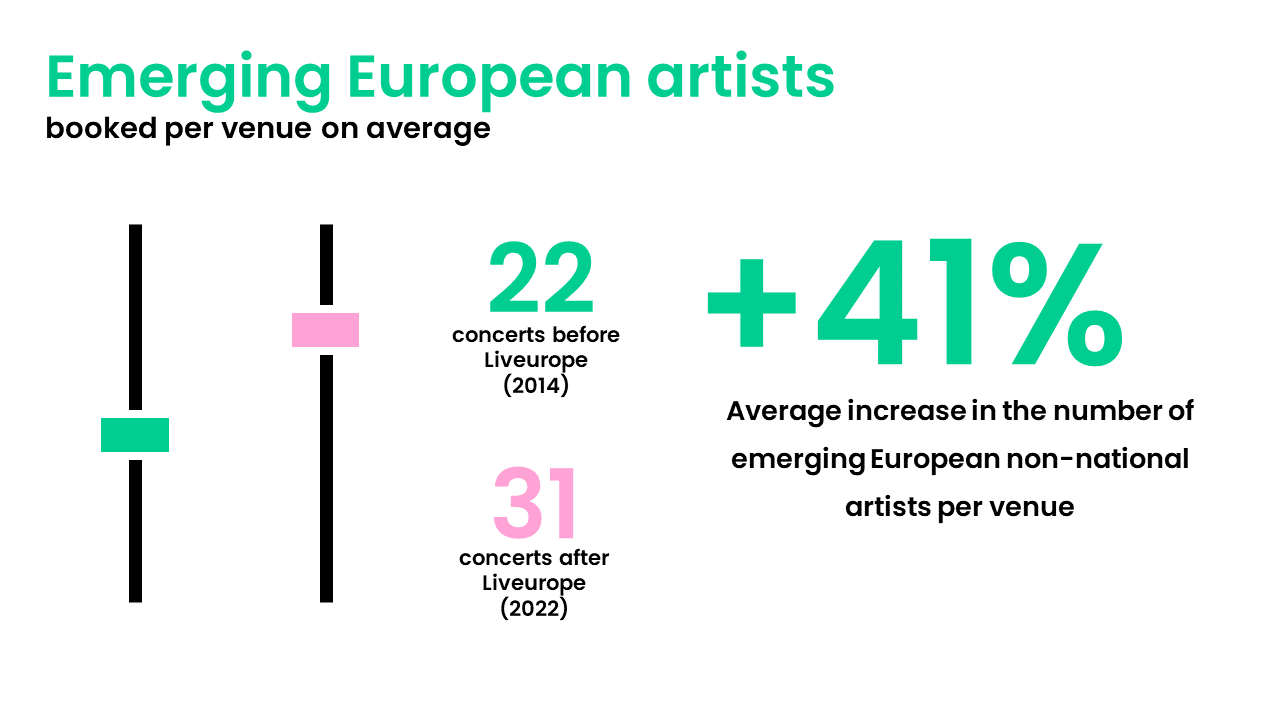2022 was a year of recovery for the live music sector. The first months of the year were marked by the slow reopening of music venues and the phasing out of the last Covid-related restrictions. When we thought things were getting better, the Russian war against Ukraine has sent inflation and energy prices soaring to new highs, bringing a new sense of uncertainty to the sector.
Despite all this, the Liveurope venues have gone the extra mile to fulfil their mission to provide a platform for new European talent. Below, we break down the year in numbers and highlight the platform’s impact on the circulation of European repertoire.
On the path towards recovery
In 2022, the Liveurope venues have managed to organise a total of 600 concerts with emerging European non-national artists of 32 nationalities. This brings the total number of concerts Liveurope has supported since 2014 to 3550.
In line with our goals to foster more sustainable touring practices, we launched a new programme this year to allow the Liveurope members to partner with other venues in their region to secure extra bookings for artists. Besides the environmental benefits, the programme allows artists to get more exposure in a certain country and develop a wider fan base. Out of the 600 concerts supported this year, about 40 were organised in partnership with 30 non-Liveurope venues.

Zooming in
But what do these numbers mean for venues and artists more concretely?
Before joining Liveurope, our members were booking, on average, 22 concerts with emerging European non-national artists. In 2022, they booked 31 concerts, representing a 41% increase in the number of European artists playing on their stages.

Covid-19’s continuous toll
Despite these positive results, the number of Liveurope bookings has not yet returned to pre-Covid-19 levels. In the last season pre-pandemic (2018-2019), the Liveurope venues had booked, on average, 36 concerts with emerging European non-national artists (63% more than before joining our platform!).
On the bright side, the 31 acts booked in 2022 still represent a threefold increase in comparison to season 2020-2021.

Looking into the future
Although international touring has made a comeback in 2022, it is still considerably more challenging to promote new European talent than pre-Covid.
The current crisis in Europe is putting extra pressure on venues’ finances, giving them less room to invest in up-and-coming artists. The support Liveurope provides concert halls to strengthen their European programming has become more important than ever to ensure they can continue taking risks on new acts.
More and better-targeted EU funding is needed to boost the circulation of European artists. Scaling up initiatives with a track record in promoting European repertoire would allow for more key actors to receive much-needed EU support to pursue this mission.



























